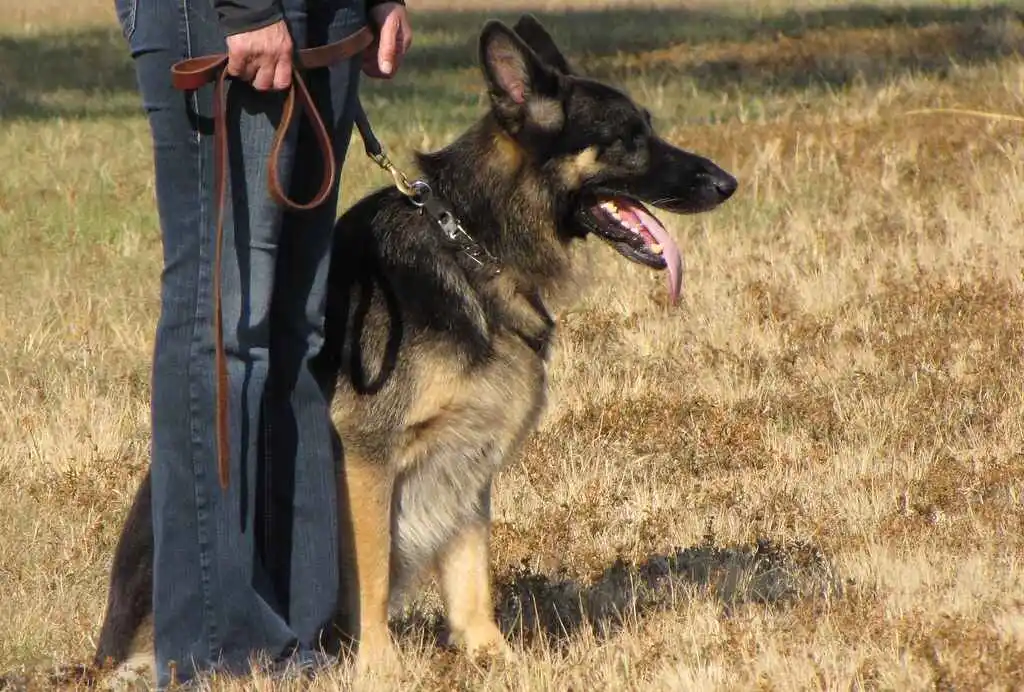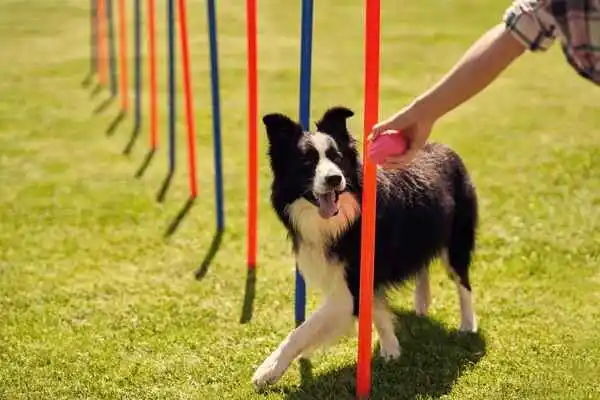
The question of whether all dogs are trainable or not is discussed between pet owners, trainers, and scientists who study animal behavior. The main problem is about how genetics, environment, and training methods work in harmony. Most people are sure that some dog breeds learn all lessons better and listen to more dog trainers feel that almost every dog can be trained if the right method, patience, and understanding are used. This article is focused on the statement of whether it is easy or hard for dogs to learn. Hence, the factors that are involved in the learning of the dogs and the probability for the dog to exceed human expectations are also in this paper.
Are All Dogs Trainable? Breed Specifics and Training Challenges
When it comes to dog training, the question is not is a particular dog is trainable, but rather, how can we accommodate our methods to the needs and characteristics of each specific dog? A reason for different trainability lies in the original purposes and temperaments of individuals and may even include past experiences, as seen in rescue animals. Nonetheless, the right method, composure, and willingness to comprehend should be practiced for every dog to learn and grow.
Training Challenges: A Universal Experience
Owners of every dog, no matter the breed, face a broad range of training challenges. Some of the most prevalent include:
- Housebreaking: This is a struggle especially with the older dogs that have probably spent many years without a daily routine. Regular regime and positive reinforcement will sooner or later provide outstanding achievements.
- Basic Commands: Teaching the commands of ‘sit’, ‘stay’, and ‘come’ is necessarily time-consuming and patient. The basis of training should be positive reinforcement and reward-based training methods.
- Behavior Problems: Some of the major problems, such as excessive barking, chewing, and jumping, are a result of their instincts and the environment in which they live. To resolve such behaviors, a blend of training, some sort of environmental changes, a professional help is at times needed.
- Leash Training: One of the most often faced problems is dogs pulling on the leash. It can be overcome with thorough leash training sessions and by using appropriate harnesses or collars.
- Socialization: Properly socializing your dog with other pets and people is really needed for avoiding aggressive behavior, but difficult for some, especially people with trauma and those who had no opportunity to socialize early.
Breed Specifics in Trainability of a Dog
While every dog is an individual, certain breeds tend to be categorized by their general ease of trainability:
- Highly Trainable Breeds: Working Dogs and Herding Breeds like Border Collies, Labrador Retrievers, and German Shepherds are also included. They are friendly, and it is no wonder that they always find themselves in the center of the action and with loads of house chores to do.
- Less Trainable Breeds: Some hound breeds, like Beagles and Bassett Hounds, can be more problematic to train because their intense hunting urge and independent character can contain them.
- Moderately Trainable Breeds: This category may go either way because one’s attitude is the main determinant of what will happen. The Bulldogs and some terrier breeds would come here in this category as they can be trained effectively but require more level of creativity and endurance in training.
Factors Influencing Trainability
The capability of dogs in training and learning is not limited to just the breed or genetics of it. What is more, many different parameters largely decide on the competent training of a dog. In-depth knowledge of these specifics contributes to the development of more calculated and personalized training programs.
- Age: Younger dogs usually learn faster than senior dogs, but with your patience, old dogs can also learn to do new stuff.
- Health and Physical Ability: The health condition of a dog and its strength and agility capabilities may, to some extent, determine what tasks a dog can execute. It goes without saying that health checkups on a regular basis are a must in order to obtain fitness training.
- Mental Stimulation: Dogs that are regularly supplied with aids that help to push their brains to the limit by giving them games, puzzles, and interactive toys turn out to be better trained and more receptive to training.
- Consistency: The consistent use of signals and rewards enables dogs to quickly learn what is expected of them, serving to reinforce the lessons learned.
- Environment: A stable and secure environment is particularly significant. Dogs having chaotic and stressful surroundings may have an inability to concentrate or learn.
- Relationship with the Trainer: The trainability of a dog is greatly affected by the relationship between the dog and its trainer. The dogs will be more inclined to follow the commands from someone whom they trust and respect.
- Training Method: The choice of training mode significantly determines effectiveness. Rewards-based training not only works across breeds but also on behavior-specific issues. Being consistent with positive reinforcement and using humane training techniques are the most important steps while training dogs.
The Myth of Untrainable Dogs
The myth that some dogs are not capable of training is often a misinterpretation of the dogs’ breed, age, or past. The experts explain that any dog can learn if you employ the right strategies for your particular dog and not just what works on most dogs. Even those older dogs who have struggled through life or those who are not the most agreeable can train better with kind and patient treatment.
Sometimes, you see people having a misconception regarding dogs, especially the trained dogs, thinking it’s about their instinct or background, not their ability to get trained. In the case of training untrainable dogs, you need to resort to the most suitable way and make the process fun, give more time for them to catch up, and build trust between the dog and the trainer. The question of whether all dogs are trainable or not indicates that the dogs simply need the correct method and then the sky is the limit on what they can achieve.
Tools Needed for Training Your Dog
The right tools can bring you a long way in terms of the effectiveness of your dog training and make this process enjoyable for you as well as your dog.
Below is a list of important tools that can aid in training your dog:
- Training Treats
- Clicker
- Leash and Collar
- Harness
- Training Lead
- Interactive Toys
- Barrier Gates
- Bed or Crate

Trainability Through Early Socialization
Socialize your dog early because this will be crucial for their future in terms of how much they listen and how obedient they become. Socialization becomes a background to the dog’s life from his early stages and gives him the feeling of confidence and his place in the community. The proper time for this is when the animals are in the middle of the three to fourteen weeks. In this period, you can provide them with any kind of positive experience that will prevent them from being scared or aggressive when they grow up.
The process of socialization must be gradual and must ensure that it is harmonious with the puppy’s feelings. By making toys and food rewards available to them when they face a novel object and saying praise words at the same time, the environment is seen as a source of fun instead of fear. You can direct them to puppy class which will be great for their socialization and for you also to learn better techniques on how to train your dogs. One of the things that I have noticed as being really important to your puppy’s trainability and their happiness is starting their socialization process early.
Overcoming Training Challenges
Despite the excellent efforts of owners and trainers, dog training is only sometimes smooth sailing. Therefore, These obstacles are not insurmountable, and once they are understood how to deal with them, they will become your step to success.
Here are strategies for overcoming common training challenges:
- Persistence and Patience: The training process is a time-consuming one, but not without strives. It’s more important to stay consistent and not give in to impatience even when things get pretty difficult. Celebrate the small shower of success and maintain a positive demeanor throughout.
- Adapting Training Methods: Not all dogs can adapt to similar teaching approaches. If the dog around you is not reacting to the same technique, try other ways and means, like altering the reward system or the way the command is given.
- Professional Help: Sometimes, to overcome a training challenge, we have to look to a professional dog trainer or behaviorist for expert advice. These professionals can provide detailed instructions and advice that address the individual characteristics and constraints of the dog.
- Health and Comfort Check: Sometimes, the culprit is behavioral difficulties, which are consequences of other health problems. Inspect the canine in good physical shape by operating vet checkups at regular intervals. Similarly, consider the living arrangements to ensure they are comfortable and some form of safety is incorporated.
- Socialization: Dogs that are suffering from aggression or fear can gradually increase their exposure from their source of anxiety with the use of a controlled and safe manner, thus helping them to overcome such. The practice of allowing for a sequential process of desensitization may take time and should be achieved slowly.
Conclusion
The myth that all dogs are trainable or not is not a myth because many things including experts and facts, prove this so. With enough dedication and determination, even the most challenging dogs to train can be turned into obedient companions, and it is not just nature but rather the humans who train the dog that determines the dog’s success. Companionship is a huge thing. Slow down, keep it up. Understanding your dog and choosing the right tool is important.
Even when people think certain dogs do not train well, this usually is only because they don’t understand the dog’s behavior or the training rules are incorrect, not because there is something wrong with the dogs. Instruction can be directed to overcome difficult tasks that are suitable for an individual dog, what they need, and what their prior experience is.
These elements should not be neglected: beginning the training as early as possible, offering a solid routine, providing stable surroundings, and building a good relationship with the dog. Above this, you can earn this goal only by practice and the correct way; ultimately, every dog can be trained. It actually clarifies that, in the end, great training all amounts to teamwork between the handler and the dog.
Also Must Read: How To Housebreaking Your Puppy: Step-By-Step Guide







